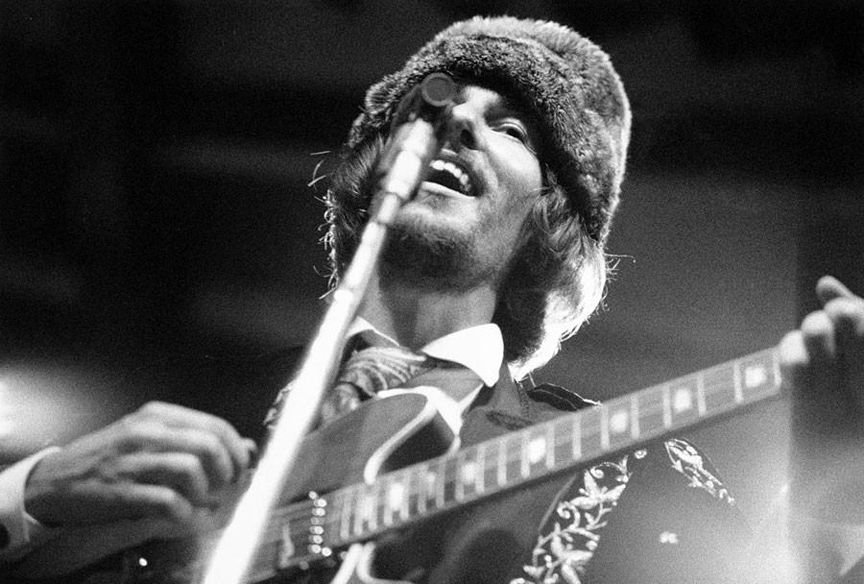



John Phillips

 Artist or BandFather - Claude M Andrew Phillips (1888 - 1960). A retired United States Marine Corps officer. |  Artist or BandMother - Edna Gertrude Gaines (1904 - 1980). |
|---|---|
 Artist or BandSiblings - Rosemary Ann Phillips (1922 - 1991), John Edmund Andrew Phillips (1935 - 2001), and Thomas Richard Moran Phillips (1924 - 1984). |  Artist or BandJohn Phillips attended Linton Hall Military School in Bristow, Virginia from 1942 to 1946. |
 Artist or Band1950 George Washington High School photo. John Phillips bottom right. |  Artist or BandJohn Phillips at The Bullis School about 1954. |
 Artist or BandThe Journeymen 1961. Scott McKenzie, John Phillips, and Dick Weissman. |  Artist or BandThe Journeymen in the studio 1962. Dick Weissman, John Phillips, and Scott McKenzie. |
 Artist or BandThe Journeymen on ABC’s Hootenanny! 1964. Dick Weissman, John Phillips, and Scott McKenzie. |  Artist or BandJohn Phillips in the spring of 1964. |
 Artist or BandThe New Journeymen 1964. Marshall Brickman, John Phillips, and Michelle Phillips. |  Artist or BandJohn Phillips summer of 1966. |
 Artist or BandThe Mamas & The Papas 1967. Michelle Phillips, John Phillips, Cass Elliot, and Denny Doherty. |  Artist or BandJohn and Michelle Phillips summer of 1966. |
 Artist or BandThe Mamas & The Papas November 1966. Cass Elliot, Denny Doherty, Michelle Phillips, and John Phillips. |  Artist or BandThe Mamas & The Papas November 1966. John Phillips, Michelle Phillips, Cass Elliot, and Denny Doherty. |
 Artist or Band |  Artist or Band |
 Artist or Band |  Artist or Band |
 Artist or Band |  Artist or BandThe Mamas & The Papas 1967. Michelle Phillips, Cass Elliot, Denny Doherty, and John Phillips. |
 Artist or Band |  Artist or Band |
 Artist or BandThe Mamas & The Papas 1967. Michelle Phillips, Cass Elliot, Denny Doherty, and John Phillips. |  Artist or Band |
 Artist or BandThe Mamas & The Papas at the Monterey Pop Festival 1967. Cass Elliot, Michelle Phillips, John Phillips, and Denny Doherty. |  Artist or BandThe Mamas & The Papas at the Monterey Pop Festival 1967. John Phillips. |
 Artist or BandThe Mamas & The Papas at the Monterey Pop Festival 1967. Michelle Phillips. |  Artist or BandThe Mamas & The Papas at the Monterey Pop Festival 1967. Denny Doherty. |
 Artist or BandThe Mamas & The Papas at the Monterey Pop Festival 1967. Cass Elliot. |  Artist or BandThe Mamas & The Papas at the Monterey Pop Festival 1967. Michelle Phillips, Cass Elliot, Denny Doherty, and John Phillips. |
 Artist or BandThe Mamas & The Papas at the Monterey Pop Festival 1967. John Phillips, Denny Doherty, Michelle Phillips, and Cass Elliot. |  Artist or Band |
 Artist or BandPhoto shoot for the cover of "John Phillips (John The Wolfking of L.A.)" released 1970. | 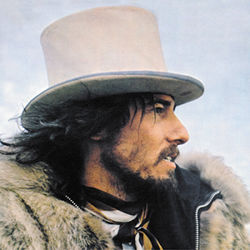 Artist or BandPhoto shoot for the cover of "John Phillips (John The Wolfking of L.A.)" released 1970. |
 Artist or BandPhoto shoot for the cover of "John Phillips (John The Wolfking of L.A.)" released 1970. |  Artist or BandJohn Phillips photo by Andy Warhol. |
 Artist or Band |  Artist or BandThe Mamas & The Papas inducted into the Rock n' Roll Hall of Fame 1998. John Phillips, Michelle Phillips, and Denny Doherty. |
 Artist or BandThe Mamas & The Papas performing "California Dreamin" at the Rock n' Roll Hall of Fame 1998. John Phillips, Denny Doherty, and Michelle Phillips. |  Artist or BandThe Mamas & The Papas performing "California Dreamin" at the Rock n' Roll Hall of Fame 1998. Denny Doherty, and Michelle Phillips. |
 Artist or BandThe Mamas & The Papas backstage at the Rock n' Roll Hall of Fame 1998. John Phillips, Denny Doherty, Michelle Phillips, and Owen Vanessa Elliot daughter of Case Elliot. |  Artist or Band |
 Promo MaterialsThe Journeymen promo photo 1963. Dick Weissman, John Phillips, and Scott McKenzie. |  Promo MaterialsThe Journeymen promo photo 1963. Dick Weissman, John Phillips, and Scott McKenzie. |
 Promo MaterialsThe Journeymen promo photo 1963. John Phillips, Dick Weissman, and Scott McKenzie. |  Promo MaterialsThe New Journeymen 1964. John Phillips, Michelle Phillips, and Marshall Brickman. |
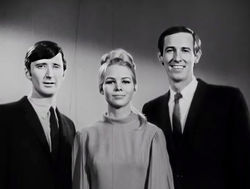 Promo MaterialsThe New Journeymen 1964. Denny Doherty, Michelle Phillips, and John Phillips. |  Articles and Write-upsThe 1964 Buccaneer, yearbook of East Carolina College. The first yearbook published by the students of East Carolina Teachers College where the Journeymen performed at the end of a week long festival. |
 Articles and Write-upsJune 1966 in London. John Phillips and Cass Elliot. |  Articles and Write-ups1966 US tour book. |
 Articles and Write-ups1966 US tour book. |  Articles and Write-ups1966 US tour book. |
 Articles and Write-ups1966 US tour book. |  Articles and Write-ups1966 US tour book. |
 Articles and Write-ups1966 US tour book. |  Articles and Write-ups1966 US tour book. |
 Articles and Write-ups1966 US tour book. |  Articles and Write-ups1966 US tour book. |
 Articles and Write-ups1966 US tour book. |  Articles and Write-ups1966 US tour book. |
 Articles and Write-ups1966 US tour book. |  Articles and Write-ups1966 US tour book. |
 Articles and Write-ups1966 US tour book. |  Articles and Write-ups1966 US tour book. |
 Articles and Write-ups1966 US tour book. |  Articles and Write-ups1966 US tour book. |
 Articles and Write-ups1966 US tour book. |  Articles and Write-ups |
 Articles and Write-ups |  Articles and Write-upsBritish Trade advertisement January, 1967. |
 Articles and Write-ups1967 Flip Magazine article. |  Articles and Write-ups1967 Flip Magazine article. |
 Articles and Write-ups |  Articles and Write-ups |
 Articles and Write-ups |  Flyers-Posters-CalendarsThe Journeymen at The Shadows 1960. |
 Flyers-Posters-CalendarsThe Journeymen with Hoyt Axton 1961. |  Flyers-Posters-CalendarsAutograph book page 1962. |
 Flyers-Posters-CalendarsVillage Gate Cabaret for Freedom Flyer 1964. | 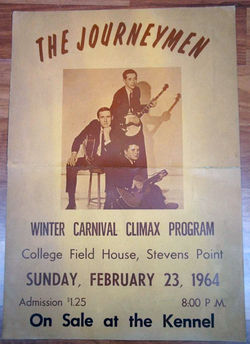 Flyers-Posters-CalendarsThe Journeymen perform at the Winter Carnival 1964. |
 Flyers-Posters-CalendarsTrade advertisement from Cash Box Magazine 1966. | 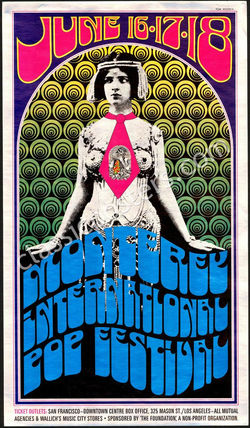 Flyers-Posters-CalendarsMonterey International Pop Festival poster 1967. |
 Flyers-Posters-CalendarsMonterey International Pop Festival poster 1967. |  Flyers-Posters-CalendarsMamas & The Papas poster 1967. |
 Flyers-Posters-CalendarsMamas & The Papas poster 1967. |  Flyers-Posters-Calendars |
 Flyers-Posters-Calendars |  Releases1961_The Journeymen front cover. |
 Releases1961_The Journeymen rear cover. |  Releases1961_The Journeymen side 1. |
 Releases1961_The Journeymen side 2. |  Releases1962_Coming Attraction Live! front cover. |
 Releases1962_Coming Attraction Live! rear cover. |  Releases1962_Coming Attraction Live! side 1. |
 Releases1962_Coming Attraction Live! side 2. |  Releases1964_New Directions In Folk Music front cover. |
 Releases1964_New Directions In Folk Music rear cover. |  Releases1964_New Directions In Folk Music side 1. |
 Releases1964_New Directions In Folk Music side 2. |  Releases1992_Collectors Series front cover. |
 Releases1998_The Very Best Of The Journeymen front cover. |  Releases1966_If You Can Believe Your Eyes and Ears front cover. |
 Releases1966_If You Can Believe Your Eyes and Ears rear cover. |  Releases1966_If You Can Believe Your Eyes and Ears side 1. |
 Releases1966_If You Can Believe Your Eyes and Ears side 1. |  Releases1966_The Mamas & The Papas front cover. |
 Releases1966_The Mamas & The Papas rear cover. |  Releases1966_The Mamas & The Papas side 1. |
 Releases1966_The Mamas & The Papas side 2. |  Releases1967_Deliver front cover. |
 Releases1967_Deliver rear cover. |  Releases1967_Deliver side 1. |
 Releases1967_Deliver side 2. |  Releases1968_The Papas & The Mamas front cover. |
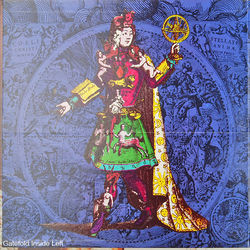 Releases1968_The Papas & The Mamas gatefold inside left. |  Releases1968_The Papas & The Mamas gatefold inside right. |
 Releases1968_The Papas & The Mamas rear cover. |  Releases1968_The Papas & The Mamas side A. |
 Releases1968_The Papas & The Mamas side B. |  Releases1970_Historic Performances At The Monterey International Pop Festival front cover. |
 Releases1970_Historic Performances At The Monterey International Pop Festival inside fold left. |  Releases1970_Historic Performances At The Monterey International Pop Festival inside fold right. |
 Releases1970_Historic Performances At The Monterey International Pop Festival rear cover. |  Releases1970_Historic Performances At The Monterey International Pop Festival side 1. |
 Releases1970_Historic Performances At The Monterey International Pop Festival side 2. |  Releases1971_People Like Us front cover. |
 Releases1971_People Like Us rear cover. |  Releases1971_People Like Us side A. |
 Releases1971_People Like Us side B. |  Releases1970_John Phillips (John The Wolfking of L.A.) front cover. |
 Releases1970_John Phillips (John The Wolfking of L.A.) rear cover. |  Releases1970_John Phillips (John The Wolfking of L.A.) side 1. |
 Releases1970_John Phillips (John The Wolfking of L.A.) side 2. |  Releases1970_Brewster McCloud Soundtrack front cover. |
 Releases1970_Brewster McCloud Soundtrack rear cover. |  Releases1970_Brewster McCloud Soundtrack side 1. |
 Releases1970_Brewster McCloud Soundtrack side 2. |  Releases2001_Pay Pack & Follow front cover. |
 Releases2001_Pay Pack & Follow rear cover. | 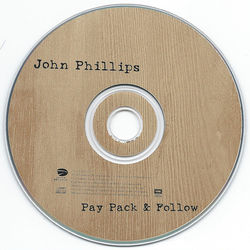 Releases2001_Pay Pack & Follow CD face. |
 Releases2001_Phillips 66 front cover. |  Releases2001_Phillips 66 page 1. |
 Releases2001_Phillips 66 page 2. |  Releases2001_Phillips 66 page 3. |
 Releases2001_Phillips 66 page 4. |  Releases2001_Phillips 66 page 5. |
 Releases2001_Phillips 66 rear cover. |  Releases2001_Phillips 66 CD face. |
 Releases2007_Jack of Diamonds front cover. |  Releases2007_Jack of Diamonds rear cover. |
 Releases2007_Jack of Diamonds CD face. |  Releases2008_Pussycat front cover. |
 Releases2008_Pussycat rear cover. |  Releases2008_Pussycat CD face. |
 Releases2009_Man On The Moon front cover. |  Releases2009_Man On The Moon rear cover. |
 Releases2016_The Man Who Fell To Earth front cover. |  Releases2016_The Man Who Fell To Earth rear cover. |
 Releases2016_The Man Who Fell To Earth box set. |
John Phillips was a pioneer and a visionary, he understood how to write a song that would not only hook you with the melody but stand the test of time itself to become a classic. Beyond that he also understood vocal harmonization which started with his time spent in The Journeymen trio and finally reaching perfection with the Mamas & the Papas.
Growing up my mother had “Deliver” and “The Mamas & the Papas” in her vinyl album collection and at the age of eight I was already a fan. “Dedicated To The One I Love”, “Look Through My Window”, “I Saw Her Again Last Night”, these were my precursors to The Monkees and The Beatles. My introduction to four-part harmony arrangements, glissando strings, and catchy pop songs that stick in your head never to leave. I am and have always been a fan of this man’s work.
I understand that John Phillips had his demons, the sixties were a time of indulgence and heavy experimentation, and that decade claimed many talented individuals. Our responsibility is to show mercy, compassion, and forgiveness separating the flaws and weaknesses from the brilliance of the body of work. I am very proud that John Phillips was born in South Carolina and grateful that I can showcase his magnificent talent.
John Edmund Andrew Phillips was born August 30, 1935, in Parris Island, South Carolina. His father, Claude Andrew Phillips, was a retired United States Marine Corps officer. His mother, Edna Gertrude, who had English ancestry, met his father in Oklahoma. According to Phillips' autobiography Papa John, his father was a heavy drinker who suffered from poor health.
Phillips grew up in Alexandria, Virginia, where he was inspired by Marlon Brando to be "street tough." From 1942 to 1946, he attended Linton Hall Military School in Bristow, Virginia. He played basketball at George Washington High School, now George Washington Middle School in Alexandria, Virginia, where he graduated in 1953, and gained an appointment to the United States Naval Academy. However, he resigned during his first year. Phillips then attended Hampden–Sydney College, a liberal arts college for men in Hampden Sydney, Virginia, dropping out in 1959 and shortly thereafter marrying his first of four wives, Susan Adams, who was the daughter of a wealthy Virginia family. Together they had a son named Jeffrey Phillips and a girl they named (Laura) Mackenzie Phillips.
Phillips longed to have success in the music industry and traveled to New York to gain a record contract in the early 1960s. His first band, The Journeymen, was a folk trio, with Scott McKenzie and Dick Weissman. They were fairly successful, putting out three albums, and had several appearances on the 1960s TV show Hootenanny. All three of their albums, as well as a compilation titled Best of the Journeymen, have since been reissued on CD. Phillips developed his craft in Greenwich Village, during the American folk music revival where he met future Mamas & the Papas members Denny Doherty and Cass Elliot.
While touring California with The Journeymen he met his future second wife, the teenage Michelle Gilliam. Their affair finally forced the dissolution of his first marriage. Phillips was married to Michelle Phillips from 1962 to 1970. They had one child together, Chynna Phillips, the founder of the singing group Wilson Phillips.
When Scott McKenzie and Dick Weissman left The Journeymen in 1964, Phillips formed the New Journeymen, performing with Michelle and banjo player Marshall Brickman. In 1965, Brickman left the group. John had met Denny Doherty, a strong voiced tenor, in New York, and they had become good friends. Doherty filled in at a New Journeymen gig, and he, John, and Michelle developed a distinctive blend of voices. The popularity of folk music was dwindling, and Doherty encouraged his friend to write pop/rock material in the vein of groups like the Beatles. As Phillips began to do that, Doherty suggested they include his friend, Cass Elliot, in their group. Elliot was already a well-established folk singer, having performed with groups like the Mugwumps (with Doherty) and The Big Three. However, John resisted the idea of including Elliot in the act. John, Michelle, and Denny decided to travel to the Virgin Islands, to escape the autumn chill of New York, and to work on a new band sound. Elliot traveled there to be near Doherty.
Fueled by the growing quadrangle of romantic tensions in the group (Elliot had a longstanding unrequited love for Doherty, Doherty and Michelle began a flirtation there which would later culminate in an affair), John wrote sensitive yet stirring songs such as "Straight Shooter" and "I Saw Her Again," which alluded to his feelings about Michelle's relationship with Doherty. These songs, along with others he wrote that year, would be the first hits for the group, which would be named the Mamas & the Papas.
When they returned to the states, John, Michelle, and Doherty drove to L.A., where Elliot was already staying. Bending to her immense vocal talent, John officially made Elliot a part of the group. He got them a live audition with producer Lou Adler, at the time the head of Dunhill Records. Adler was so bowled over that he offered them a deal immediately.
Dunhill released their first album, If You Can Believe Your Eyes and Ears, at the start of 1966. The group had their first big hit with "California Dreamin'," a song about the cold alienation of a New York winter that eventually topped out at #4. Another cut from the album, "Monday, Monday," soon followed up the charts and reached #1. Popularity and financial success followed. John also scored a huge hit with his friend Scott McKenzie's rendition of John's song "San Francisco" in 1967.
Phillips helped promote the Monterey International Pop Music Festival held June 16 to 18, 1967, in Monterey, California; he performed with the Mamas & the Papas as part of the event as well. The festival was planned in just seven weeks and was developed as a means to validate rock music as an art form in the way jazz and folk were regarded. It was the first major pop-rock music event in history. He also co-produced the film Monterey Pop (1968) with the group's producer Lou Adler.
More albums followed, filled with John's trademark blend of pop, rock, and tin-pan alley influences, and accented by his precise arrangements of stunning harmonies. But personal animosities overwhelmed the Mamas & the Papas, and they broke up in 1968. John and Michelle divorced in 1970 and that same year Phillips released his first solo album, John, the Wolf King of L.A. Self-conscious about what he believed to be his limited vocal talents, he intentionally hid his voice in the mix. Despite the inclusion of several excellent new songs including the minor hit "Mississippi", the album was not a success.
Phillips married his third wife film actress Genevieve Waite in 1972. The couple had two children together, a son, Tamerlane Phillips, and a daughter, Bijou Phillips, (who became a model and actress).
Phillips moved to London in 1973, where Mick Jagger encouraged him to record another solo album. It was to be released on Rolling Stones Records and funded by RSR distributor Atlantic Records. Jagger and Keith Richards produced and played on the album, as well as former Stone Mick Taylor and future Stone Ronnie Wood. The project was derailed by Phillips' increasing use of cocaine and heroin, which he injected, by his own admission, "almost every fifteen minutes for two years". In 2001, the tracks of the Half Stoned or The Lost Album album were released as Pay Pack & Follow a few months after Phillips' death.
In 1975 Phillips, still living in London, was commissioned to create the soundtrack to the Nicolas Roeg film The Man Who Fell to Earth, starring David Bowie. Phillips asked Mick Taylor to help; the film was released in 1976.
Phillips and Waite worked on a script and composed over 30 songs for a space-themed musical called Man on the Moon, which was eventually produced by Andy Warhol but played for just two days in New York after receiving disastrous opening night reviews. This disappointment propelled Phillips further into drug addiction.
Nearly a decade of drug abuse (and some drug dealing) culminated in a narcotic trafficking conviction for Phillips in 1981. After spending a month in jail, he went through rehabilitation, and entered a much more productive phase during which time he co-authored his best-selling autobiography, Papa John, which was published in 1986.
With Terry Melcher, Mike Love, and former Journeyman colleague Scott McKenzie, he co-wrote the number-one single for the Beach Boys, "Kokomo". The song was used in the 1988 film Cocktail and was nominated for a Grammy Award (Best Song Written specifically for a Motion Picture or Television) and a Golden Globe Award for Best Song.
Phillips spent his last years in Palm Springs, California, with Farnaz Arassteh, his fourth wife. On March 18, 2001, he died of heart failure in Los Angeles at the age of 65, days after completing recording sessions for a new album.
John Phillips was among hundreds of artists whose material was destroyed in the 2008 Universal fire. In 1996, a Golden Palm Star on the Palm Springs, California, Walk of Stars was dedicated to Phillips. The Mamas & the Papas were inducted into the Rock 'n' Roll Hall of Fame on January 12, 1998, and the Vocal Group Hall of Fame in 2000.